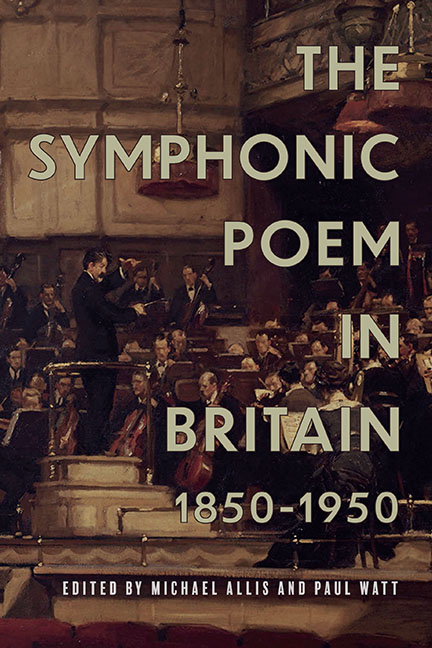7 - Gustav Holst’s Beni Mora and the Orientalist Imagination
Published online by Cambridge University Press: 23 October 2020
Summary
OFTEN fuelled by literary works, the tone poem became a consistent mode of expression for Gustav Holst throughout his career. Holst is better known, though, for his symphonic suite, The Planets, where each movement is a virtuoso character piece based on astrological symbols. His success as a mature composer of tone poems is indebted to these types of character suites. They pervade his early compositional life: the Suite de Ballet (1899), Phantastes Suite (1911), Japanese Suite (1915), even the dances from The Perfect Fool (1924). At the same time, though, the tone poem was not a genre completely alien to the composer, especially early on, with works such as A Winter Idyll (1897) and Indra (1903).
In the twentieth century musical genres were constantly subject to intermixing or overlap, and such is the case with Beni Mora (c.1908–12). There the genre division between character suite and tone poem seems to become enmeshed, with fascinating results. Though consisting of three movements, only the last of these carries an evocative subtitle, ‘In the Street of the Ouled Naïls’, signalling its status as a separate tone poem. In early performances, Holst even announced the narrative for this music from the rostrum, or had it printed in the programme. In addition to the issue of generic hybridity, the work also represents a synthesis of two longstanding motivators of tone poem composition which would become central to Holst's later compositions in the genre Egdon Heath (1927) and Hammersmith (1930): literary inspiration and autobiographical narrative.
Beni Mora has long been rightfully associated with Holst's solo vacation to Algeria in 1908, where he supposedly travelled through the desert by bicycle, collecting folk tunes along the way. However, this charming narrative, promoted by his daughter and principal biographer Imogen Holst, does not explain the specific title of the suite, borrowed from Robert Hichens's orientalist novel, The Garden of Allah (1904). In the novel an English girl, Domini, travels to North Africa to find herself. She is both shocked and fascinated by her exotic surroundings, and in the course of the story becomes pregnant (the result of a torrid and tragic affair with a monk). She eventually decides to remain in the desert, finding meaning for her life in her child.
- Type
- Chapter
- Information
- The Symphonic Poem in Britain, 1850–1950 , pp. 219 - 244Publisher: Boydell & BrewerPrint publication year: 2020

